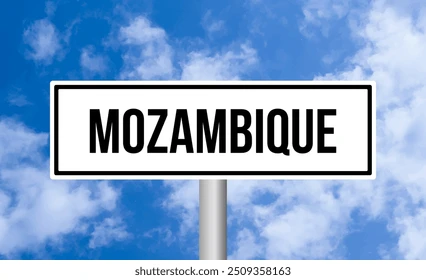By Bahle Gama
Protests over the rising cost of living have erupted in Mozambique, leading to road closures, violence, and fear among residents and travellers.
Rioters reportedly blocked two sections of the Maputo Ring Road, bringing movement to a standstill and leaving many including Eswatini travellers and trucks stranded about 10km from the Mhlumeni border post.
The unrest reportedly began on Saturday morning and was expected to intensify on Monday, spreading across various parts of the country.
According to sources, protesters used boulders, broken bottles, and debris to barricade roads, preventing vehicles from passing.
RELATED: Tensions rise in Mozambique amid Protests
When questioned by independent television station STV, the protesters claimed they were acting on behalf of “the people,” but they had no clear leader or directive for the closures.
For Maputo residents, the disruptions are said to have caused major inconveniences, with buses and minibuses unable to operate on the barricaded roads, passengers were forced to walk long distances to their destinations.
However, as tensions escalated, police intervened with tear gas and live ammunition to reopen the ring road.
A more sinister element of the unrest surfaced in Zimpeto Market, where gangs of armed men, dubbed the “machete men,” appeared.
They reportedly ordered stallholders to shut down early on Saturday and to remain closed on Sunday, threatening those who refused to comply.
Since weekends are crucial for vendors’ earnings, the forced closures have had devastating financial consequences.
Leaflets are said to have appeared across the market ordering the shutdowns, yet they were unsigned and undated.
The gang reportedly stole goods and attacked anyone who resisted, whilst some vendors were even ordered to lower their prices, despite already operating on thin profit margins.
With no police presence in the market, vendors felt vulnerable and unprotected. Many told STV they were considering abandoning their stalls altogether.
Meanwhile, in the Maputo neighbourhood of Polana-Canico B, tensions boiled over into violence. On Friday, an enraged mob reportedly set fire to the home of a local block chief.
According to residents, the block chief had refused to step down after ten years in the position, despite the community selecting a new leader.
In an act of extreme retaliation, her house was burned to the ground. Footage aired by STV showed the remains, charred rafters and twisted metal.
The whereabouts of the ousted block chief remain unknown.
Sources who spoke to Eswatini Daily News said that the riots, road closures, and market violence paint a picture of deep unrest in Maputo, and “with no clear leaders behind the protests and law enforcement struggling to maintain order, uncertainty looms over the capital.”
Further enquiries led to a conversation with the Ambassador of Eswatini in Mozambique Mpendulo Dlamini at 5 p.m who confirmed the reports after having been contacted by some of the travellers who had been trapped by Mhlumeni Border Post.
“We are aware of the situation, and we have requested local authorities to intervene and rectify the situation because it does not make sense that emaSwati and others can be stranded when there are bodies responsible for dispersing the people causing these riots and blockades,” he said.
He further confirmed the reports that during the day, Mozambican police officers had arrived at the scene, and instead left without helping the stranded emaSwati to at least turn back home.
RELATED: Mozambique submits report to exit grey list
This he said is unethical, and puts bilateral relations in jeopardy, because both countries are expected to assist each other in such situations where lives and the safety of civilians are at stake.
“We are keeping our ears on the ground and are waiting for feedback on the situation.
We expect that at least they should be escorted back to the border post and return to Eswatini, whilst the Mozambican government puts its house in order,” Dlamini added.
Worth noting is that the neighbouring country is recuperating from riots last month post the elections, which forced locals to seek refuge in nearby countries including Eswatini and Rwanda.
On Friday, February 21, 2025, whilst speaking during the opening of the 2025 military year in Mocumba, Zambezia, Mozambican President Daniel Chapo said in addition to the Islamist terrorists in the northern province of Cabo Delgado,
and the peasant militia known as the Naparamas in Zambezia, the armed forces (FADM) have to face a third threat – that of violent protesters and rioters, who have been disrupting the economy across the country.
Chapo suggested, that the FADM might be used against the rioters who have been blocking roads, looting stores and destroying buildings in several provinces.
He stressed that FADM must behave firmly when it comes to riots, but observing the law guarantees the safety of the population, and the functioning of public and private institutions.
“Our response must be firm, but always within the law”, said the President.
He further noted that the rioters had started their activities as protests against the results of the October 9, 2025, general elections, who had changed their tune and said they were protesting against the high cost of living.
Chapo regarded such claims as no more than pretexts for wrecking the Mozambican economy – just as was done during the 16-year war of destabilisation waged against Mozambique by the Rhodesian and South African racist regimes.
According to the President, the Mozambican government is working to bring down the cost of living, adding that “we wonder what excuse the rioters will produce to continue to sabotage and strangle our economy.”
